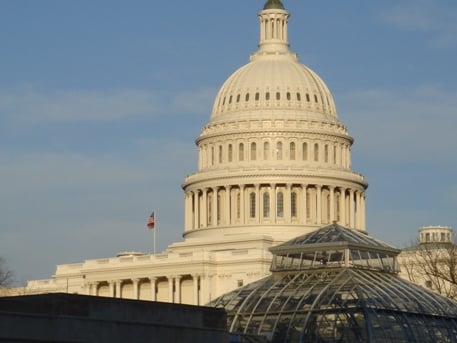The House Appropriations Committee approved a bill Wednesday that provides only a fraction of the funding requested by the Securities and Exchange Commission.
The Republican-led panel passed by voice vote a $21.15 billion measure that includes a $50 million increase for the SEC for fiscal year 2013. The money is restricted so that it cannot be used to implement the Dodd-Frank financial reform law. The agency requested a $245 million boost to its $1.32 billion budget.
The House budget bill is at odds with a measure approved last week by the Senate Appropriations Committee that provided the SEC's full funding request.
It's not clear how the differences will be worked out. In past years, Congress has passed continuing resolutions to maintain agencies at their current funding levels if lawmakers could not agree on a budget by Sept. 30, the end of the fiscal year.
The SEC's struggle for funding bolsters the argument made by proponents of a
self-regulatory organization for investment advisers. They assert that Congress will never give the SEC enough funding to increase its current 8% adviser examination rate significantly.
There are expected to be about 10,000 registered SEC advisers by the end of the month, when those with fewer than $100 million in assets under management will officially switch to state regulation.
Rep. Jo Ann Emerson, R-Mo., chairwoman of the financial services subcommittee, defended the House's SEC funding level, noting that the agency received a 6.6% increase in fiscal year 2011 and 11.5% for fiscal year 2012. She said that few other agencies have seen their budgets rise at the same rate.
The SEC doesn't deserve a bigger increase until it improves its operations, according to Ms. Emerson.
“The SEC's problems are not due to lack of funding,” she said in a prepared statement. “They are due to poor implementation of information technology, poor economic analysis, a burdensome organizational structure and a history of not holding their employees accountable.”
Democrats on the committee decried the SEC-funding total.
“The bill underfunds the Securities and Exchange Commission, part of the majority's strategy to undermine the implementation of the Dodd-Frank Act,” said Rep. Norm Dicks, D-Wash., ranking member of the Appropriations Committee. “Funding the SEC at this level prevents the hiring of the staff needed to finalize the remaining Dodd-Frank rules and regulations.”
An amendment offered by Rep. Jose Serrano, D-N.Y., ranking member of the financial services subcommittee, that would have restored the $195 million cut from the SEC's funding request was defeated, 28-20.
Mr. Serrano said that the SEC requires a bigger budget to complete its Dodd-Frank work, which will help prevent another financial crisis.
“The need for additional funds is urgent,” Mr. Serrano said. “We need to spend more dollars now in order to get some protection.”
Ms. Emerson responded that the SEC must earn a raise.
“The commission really does need to get back on track and show us more real progress before we give them hundreds of millions of dollars more,” Ms. Emerson said.
In appearances before congressional committees, SEC Chairman Mary Schapiro has stressed the management restructuring, operational improvements and enforcement gains the agency has made during her three-year tenure. She, of course, prefers the Senate budget.
“This would provide the resources that are needed to adequately protect investors, ensure market stability and reduce regulatory bottlenecks,” SEC spokesman John Nester wrote in an e-mail before the Senate committee vote. “A properly funded SEC does not increase the deficit and is a good investment for investors, companies and markets.”







